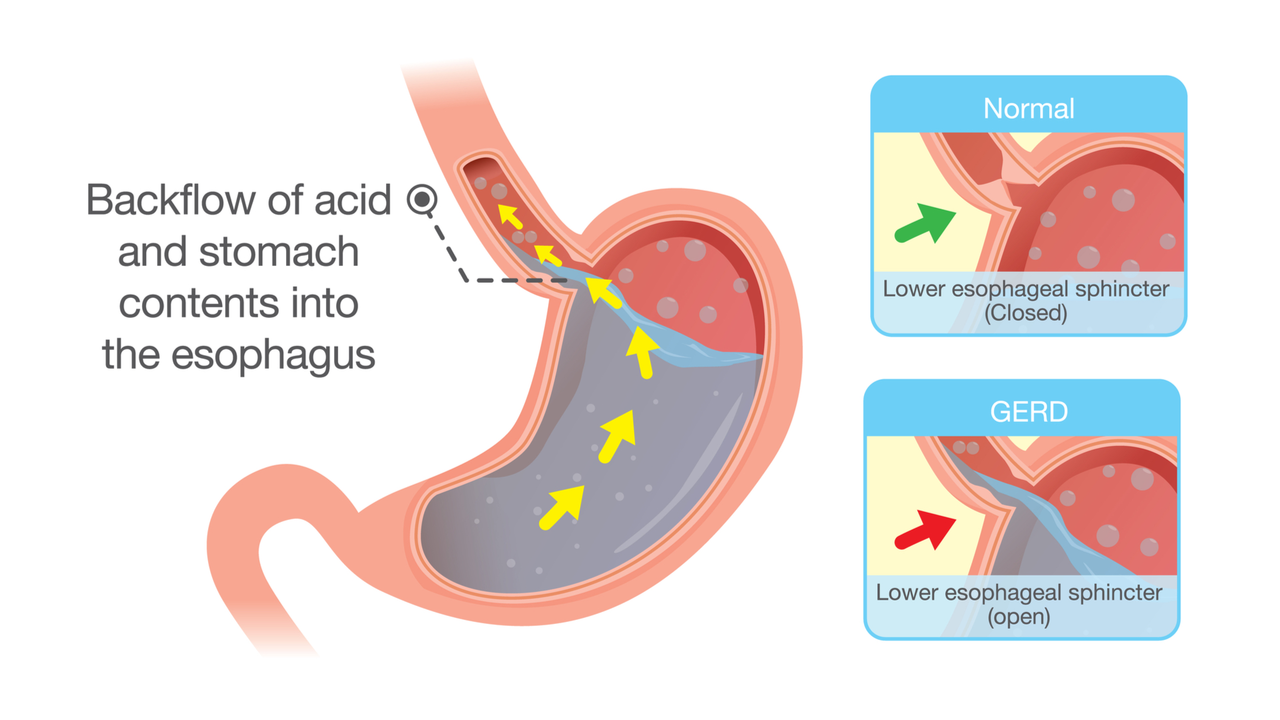GERD: How to spot it, treat it, and feel better
Getting heartburn once in a while is normal. Getting it several times a week is not. GERD (gastroesophageal reflux disease) means stomach acid is regularly flowing back into the esophagus. That can damage tissue, disrupt sleep, and hurt your quality of life if you ignore it.
Common signs to watch for include burning chest pain after meals, frequent regurgitation, chronic cough, hoarseness, sour taste in the mouth, or trouble swallowing. If heartburn wakes you at night or comes up after small meals, start paying attention—those are signs reflux is more than occasional.
What usually causes GERD
Most reflux starts when the lower esophageal sphincter (LES) weakens or the stomach pushes up through the diaphragm (hiatal hernia). Extra weight, large meals, late-night eating, smoking, alcohol, and certain foods—like coffee, chocolate, spicy or fatty meals—make reflux worse. Some medicines and conditions that slow stomach emptying can also increase reflux risk.
If you have diabetes, especially with nerve damage to the gut (gastroparesis), you may notice more reflux because food stays in the stomach longer. In those cases your doctor might consider medicines that speed up stomach emptying, but those drugs can have side effects worth discussing.
Practical steps you can try today
Small changes often help a lot. Eat smaller meals and avoid lying down for two to three hours after eating. Raise the head of your bed 4–6 inches so gravity helps keep acid down while you sleep. Swap trigger drinks (coffee, soda, alcohol) for water. If you smoke, quitting reduces reflux and helps healing. Losing even 5–10% of body weight can cut reflux episodes for many people.
Over-the-counter antacids give quick relief, while H2 blockers (famotidine) reduce acid for several hours. Proton pump inhibitors (PPIs) like omeprazole heal the esophagus and are best when taken daily for a short, clearly planned course. Long-term PPI use should be reviewed with your doctor because of possible risks like low magnesium, bone issues, or gut infections.
For people with delayed stomach emptying, prokinetic drugs may be considered, but they can cause movement or mood side effects for some users. Talk with your provider about benefits and risks—there’s a full article on metoclopramide and mental health if you want more detail.
If lifestyle changes and a short trial of OTC meds don’t help, see your doctor. Warning signs that need urgent care include difficulty swallowing, unintentional weight loss, vomiting blood, or black stools. Your clinician may order tests such as endoscopy, pH monitoring, or manometry to find the exact cause and guide treatment.
When meds aren’t enough, there are procedures that reduce reflux. Surgical options like fundoplication or newer endoscopic treatments can be effective for the right patients. A careful discussion with a gastroenterologist will explain which option fits your situation.
Start by tracking your symptoms and triggers for two weeks. Try the simple lifestyle steps, try an OTC option if needed, and make an appointment if problems continue twice a week or if alarm symptoms appear. Small changes plus the right medical plan can get you sleeping, eating, and living without daily acid pain.

GERD and Acid Reflux: Understanding the Differences Between These Digestive Disorders
Haig Sandavol Jun 12 6As a blogger, I've come to realize the importance of understanding the differences between GERD and acid reflux, two common digestive disorders. While both involve stomach acid flowing back into the esophagus, GERD is a chronic condition characterized by frequent acid reflux episodes. Acid reflux, on the other hand, is an occasional occurrence that can be triggered by certain foods or lifestyle factors. By being aware of these distinctions, we can better manage our digestive health and seek appropriate treatment when necessary. Stay tuned for more insights on these conditions and how to keep them in check!
More Detail